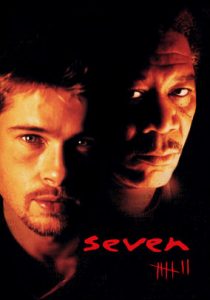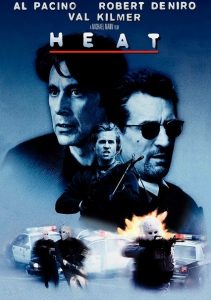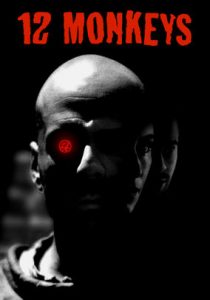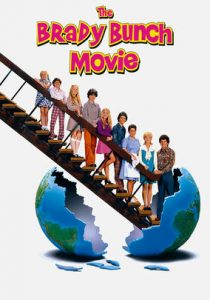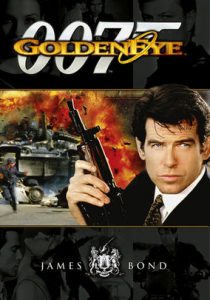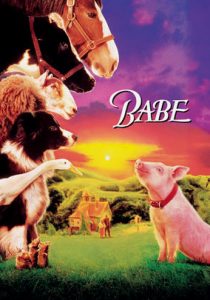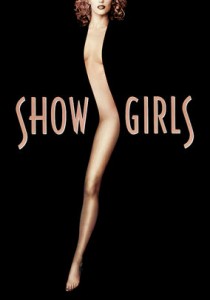Seven-1995
Director David Fincher
Starring Brad Pitt, Morgan Freeman
Top 250 Films #230
Scott’s Review #780
Reviewed June 29, 2018
Grade: A-
Many films containing a similar theme as Seven (1995) have come along over the years- some good, most mediocre. The mixture of homicidal detectives tracking crazed killers has been done ad nauseam and more often than not, done with either poor writing or a predictable outcome-or both.
Instead of being a run-of-the-mill film, Seven serves as a representative blueprint of the tautness and unpredictability that can be achieved by using a familiar yet compelling concept, provided there is good writing and good direction.
The film is incredibly brutal and riveting.
Respected director David Fincher gathers an all-star cast of Hollywood heavies including Brad Pitt, Morgan Freeman, Kevin Spacey, and Gwyneth Paltrow, all of whom add to the well-crafted script.
It also brings the talent level to respectability and, as great as the story is, with weaker actors, the stakes would not have been as high and the film may have even been ruined.
A serial killer is on the loose in Los Angeles- detective duo William Somerset (a very good Freeman) is set to retire and is tasked with finding the killer. He is partnered with David Mills (Pitt), a young, hot-tempered man who has just moved to the city with his wife Tracy (Paltrow).
Unbeknownst to David, Tracy is pregnant and unsure whether to keep the child- this point factors in heavily as events unfold.
The killer is using the seven deadly sins: greed, gluttony, sloth, lust, pride, envy, and wrath, as his motivation for the creative slayings.
In retrospect Seven is very similar to the still-to-come Fincher work, 2007’s Zodiac, so much so that both films could be watched in sequence- one being a true story, the other pure fiction.
Both focus on the serial killer element with a message, they each have marvelous psychological intrigue and purpose. There are cat-and-mouse scenes aplenty for fans to enjoy.
At the risk of this point being a total stretch, I’d also argue that 1971’s Dirty Harry influenced Zodiac, Seven, and The Silence of the Lambs (1991).
A heinous killer shrouded in intelligence, danger, and motivation is a commonality of all of the aforementioned films, and numerous studies of each of the killers could be dissected if time permits.
Each killer is calculating and manipulative.
On that note, Kevin Spacey gives a tremendous performance as the cold and villainous John Doe. Clever and inventive, his victims are intended to suffer and suffer greatly.
Some of the kills could be included in the best of the torture-horror franchise, Saw (2004), as they are very twisted and carved in brutality.
A supermodel is disfigured after being given a choice to call for help or overdose on pills, representing pride. A man is forced to consume food until his stomach ruptures, representing gluttony. Spacey portrays his role as calm, cool, and collected, eliciting a terrifying response from audiences, especially as he toys with the detectives.
Still coming into his own as an actor in 1995, Pitt proves he can almost measure up (though not quite) with big-boy acting talents Spacey and Freeman. Playing an ambitious man eager to prove himself in “the big city” with his pretty wife in tow, Pitt’s David is wholesome and family-oriented, yet has an edge.
All around the likable hero, Pitt is perfectly cast in the role and a large part of its success.
The frightening final sequence still resonates with me after all of these years since Seven was released. In a classic standoff between Doe and the detectives, as is typically the case in these types of films, the ultimate climax is twisted, psychological, and gruesome.
I did not see this shocker coming as it culminates in lives being forever changed. The expressions and actions of Freeman, Pitt, and Spacey are superlative.
Seven (1995) is a film basking in riches. On par with the best of the best in serial killer films, it is powerfully directed by Fincher. The film is fraught with grisly symbolism and its share of suspenseful sequences.
With powerful acting, it is a film relevant and watchable decades after the original release. Perhaps not quite on the level as Dirty Harry or The Silence of the Lambs, but pretty damned close and that is impressive in itself.
Oscar Nominations: Best Film Editing
